Troubleshooting Pool Pump Issues
Having a pool at your home can offer great pleasure, particularly during hot summer days. The refreshing feeling of diving into cool water and the fun of poolside gatherings are experiences to cherish. However, maintaining a pool isn't always as delightful—especially when you encounter issues with your pool pump. As the heart of your pool's circulation system, responsible for filtering and circulating the water, the pump plays a critical role in keeping your pool clean and safe for swimming. Any malfunction or inefficiency in the pump can lead to significant problems, such as poor water circulation, inadequate filtration, or even damage to other pool equipment. This article aims to provide you with practical guidance for troubleshooting common pool pump issues, empowering you to effectively diagnose and resolve problems, and ensure that your pool stays in optimal working condition for endless hours of enjoyment and relaxation.
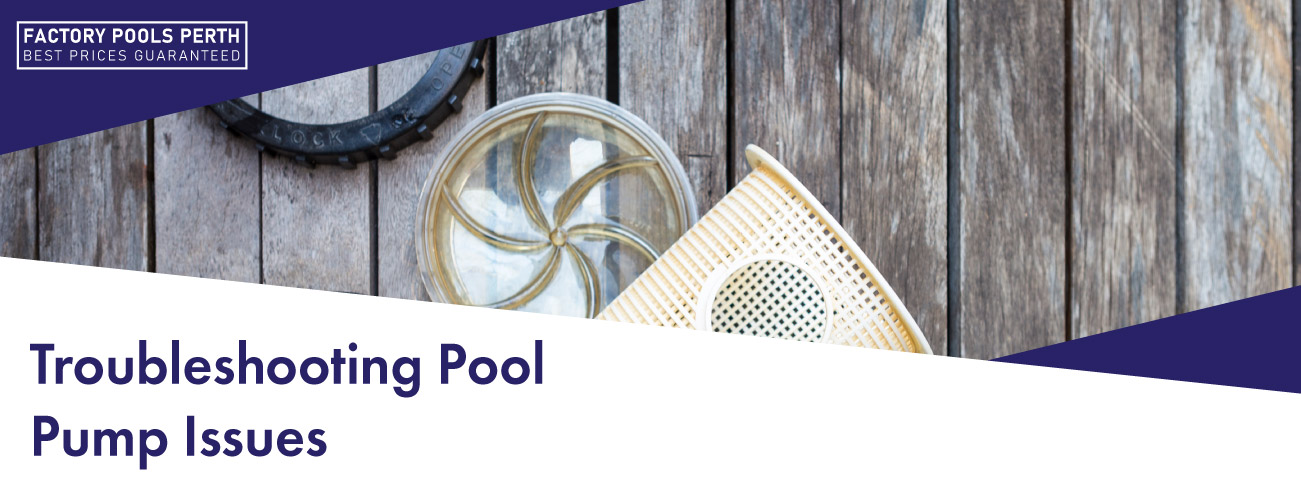
Here's what to look for:
Pool Pump Not Priming
Priming is an important step in the pool pump’s operation, as it involves filling up the pump with water and initiating the circulation process. If your pool pump fails to prime, there are a few likely culprits that could be causing the issue. One possibility is air leaks in the suction line, which can disrupt the flow of water. Another potential cause could be clogged strainer baskets, where debris and dirt can accumulate and obstruct water flow. Additionally, a blockage in the impeller, the component responsible for pushing water through the pump, can also prevent proper priming. To resolve this problem, it is recommended to thoroughly check all the seals for any potential leaks and ensure they are properly sealed. Additionally, cleaning the strainer baskets and removing any debris or dirt will help to ensure unobstructed water flow. Finally, inspecting the impeller for any blockages and clearing them if necessary will also help to resolve the priming issue. By addressing these potential issues, you can ensure that your pool pump is properly primed and operating optimally.
Pump is Overheating
An overheating pool pump can be caused by various factors, including poor ventilation, insufficient water, or a faulty capacitor. It is crucial to ensure that the pump is properly ventilated and not exposed to prolonged direct sunlight, as these can contribute to overheating. Additionally, it is important to maintain the water level in the pool at about halfway up the skimmer intake to ensure optimal pump performance. If the issue persists and the capacitor is the problem, it is recommended to seek assistance from a pool professional who can provide a suitable replacement and resolve the problem effectively.
Noisy Pump
A noisy pump, often characterised by unusual sounds, typically indicates an underlying issue with the bearings. In such cases, it is advisable to consider replacing the bearings to rectify the problem. If you possess the necessary expertise and feel confident, opting for a DIY approach can prove cost-effective. However, it is important to note that if the noise persists or is caused by a more significant problem, such as a failing motor, it is strongly recommended to seek professional assistance to ensure proper resolution. By addressing these concerns promptly, you can safeguard the optimal functioning of your pump and avoid potential complications in the long run.
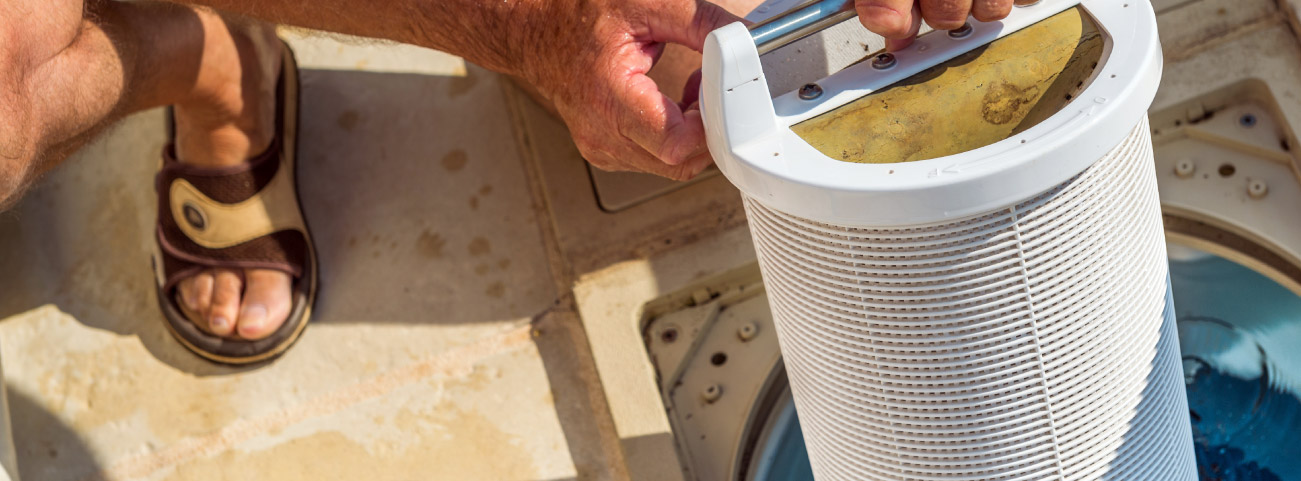
Pump is Leaking Water
A common issue in pumps is water leakage, which is often caused by worn-out shaft seals. To resolve this problem, it is recommended to replace these seals. It is advisable to replace all the seals in the pump simultaneously, even if only one is leaking. This ensures optimal performance and minimises the risk of future leaks. By addressing this maintenance task proactively, you can prolong the lifespan of your pump and prevent any potential disruptions.
Pool Pump Won’t Turn On
If your pool pump won’t turn on, the problem might be electrical. Check if the circuit breaker has tripped or the timer might be off. If you’ve ruled out these possibilities, it’s likely a problem with the motor or capacitor — a situation where professional help is recommended.
Pool Pump is Vibrating
Vibrations in your pool pump can be a telltale sign of misalignment or worn-out parts. It is possible that the pump and motor are not properly aligned, causing the vibrations. Additionally, consistent use can lead to wear and tear on the internal components of the pump, further contributing to the vibrations. In such cases, it is recommended to re-adjust the alignment of the pump and motor or replace any worn-out parts to restore optimal functionality and eliminate the vibrations. By addressing these issues promptly, you can ensure the smooth operation and longevity of your pool pump system.
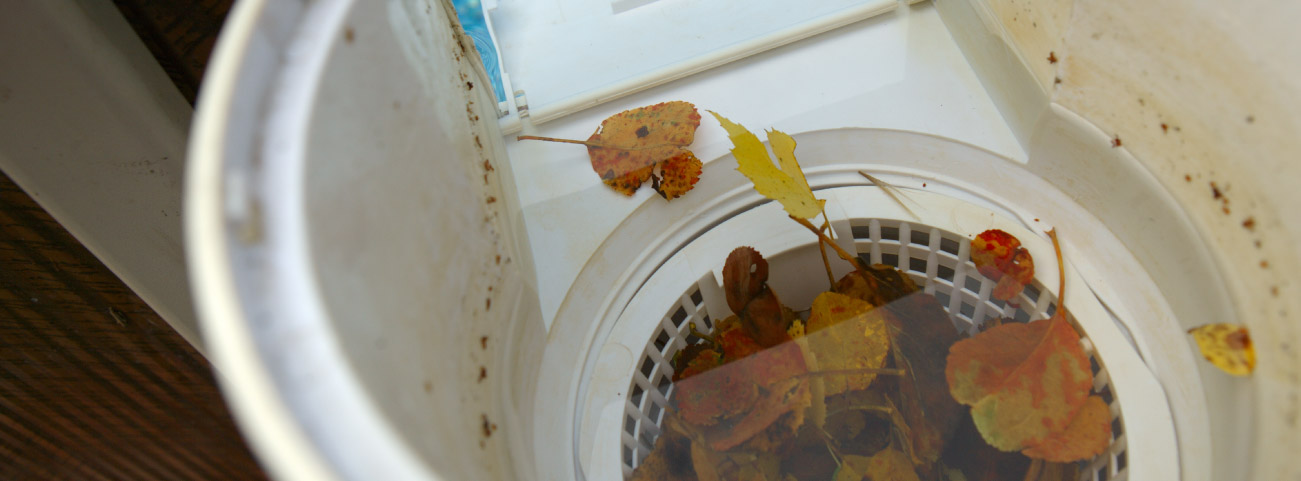
Pool Pump Losing Pressure
A pump losing pressure usually indicates an obstruction in the filter, skimmer basket, or strainer basket. It could also be due to air in the pump or leaks in the suction side of the pump. It is recommended to check and clean all baskets and filters regularly, ensure the pool’s water level is adequate, and examine the pump system for any leaks.
High Electricity Bills
If you notice a sudden and unexpected surge in your electricity bills, it could be an indication that your pool pump is not running as efficiently as it should be. This inefficiency might be due to the pump running for longer hours than necessary or perhaps the pump’s size is larger than what is required for your pool. To address this issue, consider implementing a pool pump timer that can effectively regulate the operating hours of your pump, ensuring optimal energy usage. In case you suspect that your pump is indeed oversized, it is advisable to seek the advice of a pool professional who can assess the situation and provide suitable recommendations. By taking these proactive measures, you can not only save on your electricity bills but also ensure that your pool operates at its best efficiency.
In conclusion, maintaining a swimming pool pump requires vigilance and a keen understanding of the various issues that can arise. Regularly checking for signs of trouble such as leaks, abnormal noises, overheating, or unexpected changes in your electricity bills can help nip problems in the bud and extend the lifespan of your pump. Always remember, whilst minor issues can often be resolved through vigilant care and regular maintenance, for more complex problems, do not hesitate to enlist the help of a professional. This will ensure that your swimming pool remains a fun and safe haven for relaxation and enjoyment.
Troubleshooting Pool Pump Issues
Having a pool at your home can offer great pleasure, particularly during hot summer days. The refreshing feeling of diving into cool water and the fun of poolside gatherings are experiences to cherish. However, maintaining a pool isn't always as delightful—especially when you encounter issues with your pool pump. As the heart of your pool's circulation system, responsible for filtering and circulating the water, the pump plays a critical role in keeping your pool clean and safe for swimming. Any malfunction or inefficiency in the pump can lead to significant problems, such as poor water circulation, inadequate filtration, or even damage to other pool equipment. This article aims to provide you with practical guidance for troubleshooting common pool pump issues, empowering you to effectively diagnose and resolve problems, and ensure that your pool stays in optimal working condition for endless hours of enjoyment and relaxation.
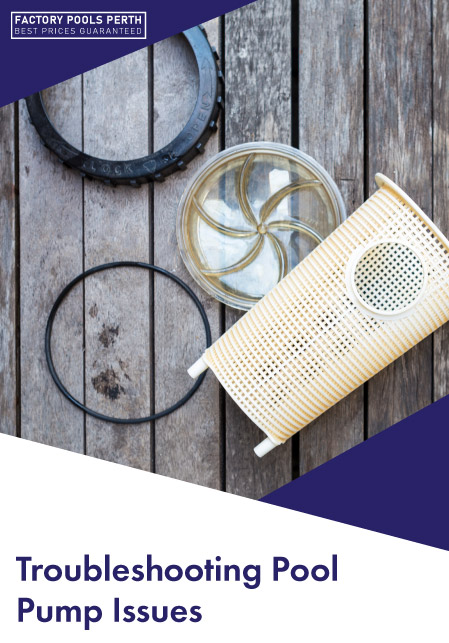
Here's what to look for:
Pool Pump Not Priming
Priming is an important step in the pool pump’s operation, as it involves filling up the pump with water and initiating the circulation process. If your pool pump fails to prime, there are a few likely culprits that could be causing the issue. One possibility is air leaks in the suction line, which can disrupt the flow of water. Another potential cause could be clogged strainer baskets, where debris and dirt can accumulate and obstruct water flow. Additionally, a blockage in the impeller, the component responsible for pushing water through the pump, can also prevent proper priming. To resolve this problem, it is recommended to thoroughly check all the seals for any potential leaks and ensure they are properly sealed. Additionally, cleaning the strainer baskets and removing any debris or dirt will help to ensure unobstructed water flow. Finally, inspecting the impeller for any blockages and clearing them if necessary will also help to resolve the priming issue. By addressing these potential issues, you can ensure that your pool pump is properly primed and operating optimally.
Pump is Overheating
An overheating pool pump can be caused by various factors, including poor ventilation, insufficient water, or a faulty capacitor. It is crucial to ensure that the pump is properly ventilated and not exposed to prolonged direct sunlight, as these can contribute to overheating. Additionally, it is important to maintain the water level in the pool at about halfway up the skimmer intake to ensure optimal pump performance. If the issue persists and the capacitor is the problem, it is recommended to seek assistance from a pool professional who can provide a suitable replacement and resolve the problem effectively.
Noisy Pump
A noisy pump, often characterised by unusual sounds, typically indicates an underlying issue with the bearings. In such cases, it is advisable to consider replacing the bearings to rectify the problem. If you possess the necessary expertise and feel confident, opting for a DIY approach can prove cost-effective. However, it is important to note that if the noise persists or is caused by a more significant problem, such as a failing motor, it is strongly recommended to seek professional assistance to ensure proper resolution. By addressing these concerns promptly, you can safeguard the optimal functioning of your pump and avoid potential complications in the long run.
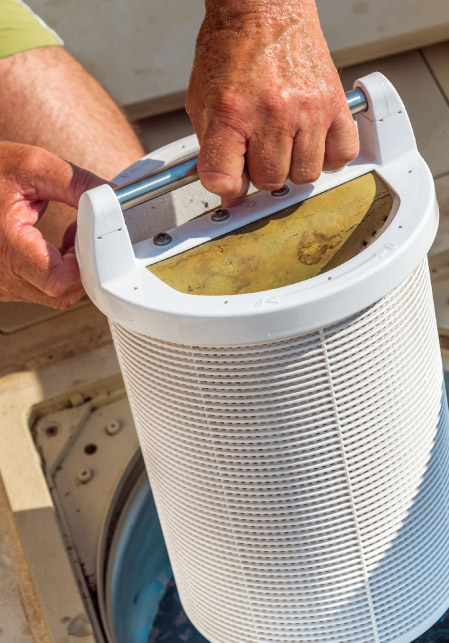
Pump is Leaking Water
A common issue in pumps is water leakage, which is often caused by worn-out shaft seals. To resolve this problem, it is recommended to replace these seals. It is advisable to replace all the seals in the pump simultaneously, even if only one is leaking. This ensures optimal performance and minimises the risk of future leaks. By addressing this maintenance task proactively, you can prolong the lifespan of your pump and prevent any potential disruptions.
Pool Pump Won’t Turn On
If your pool pump won’t turn on, the problem might be electrical. Check if the circuit breaker has tripped or the timer might be off. If you’ve ruled out these possibilities, it’s likely a problem with the motor or capacitor — a situation where professional help is recommended.
Pool Pump is Vibrating
Vibrations in your pool pump can be a telltale sign of misalignment or worn-out parts. It is possible that the pump and motor are not properly aligned, causing the vibrations. Additionally, consistent use can lead to wear and tear on the internal components of the pump, further contributing to the vibrations. In such cases, it is recommended to re-adjust the alignment of the pump and motor or replace any worn-out parts to restore optimal functionality and eliminate the vibrations. By addressing these issues promptly, you can ensure the smooth operation and longevity of your pool pump system.
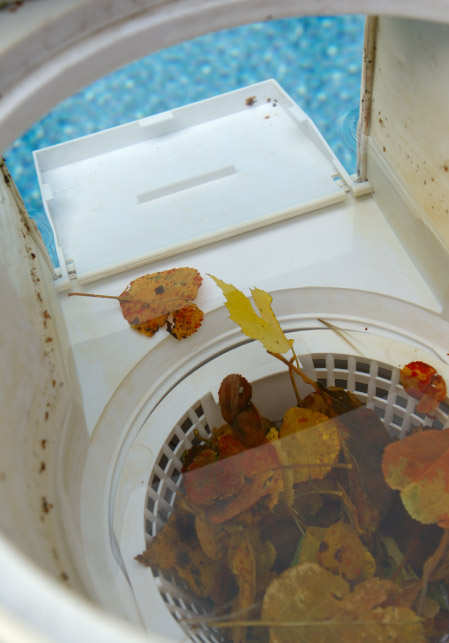
Pool Pump Losing Pressure
A pump losing pressure usually indicates an obstruction in the filter, skimmer basket, or strainer basket. It could also be due to air in the pump or leaks in the suction side of the pump. It is recommended to check and clean all baskets and filters regularly, ensure the pool’s water level is adequate, and examine the pump system for any leaks.
High Electricity Bills
If you notice a sudden and unexpected surge in your electricity bills, it could be an indication that your pool pump is not running as efficiently as it should be. This inefficiency might be due to the pump running for longer hours than necessary or perhaps the pump’s size is larger than what is required for your pool. To address this issue, consider implementing a pool pump timer that can effectively regulate the operating hours of your pump, ensuring optimal energy usage. In case you suspect that your pump is indeed oversized, it is advisable to seek the advice of a pool professional who can assess the situation and provide suitable recommendations. By taking these proactive measures, you can not only save on your electricity bills but also ensure that your pool operates at its best efficiency.
In conclusion, maintaining a swimming pool pump requires vigilance and a keen understanding of the various issues that can arise. Regularly checking for signs of trouble such as leaks, abnormal noises, overheating, or unexpected changes in your electricity bills can help nip problems in the bud and extend the lifespan of your pump. Always remember, whilst minor issues can often be resolved through vigilant care and regular maintenance, for more complex problems, do not hesitate to enlist the help of a professional. This will ensure that your swimming pool remains a fun and safe haven for relaxation and enjoyment.



